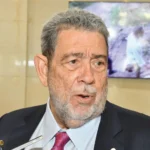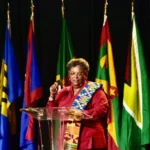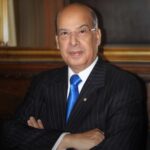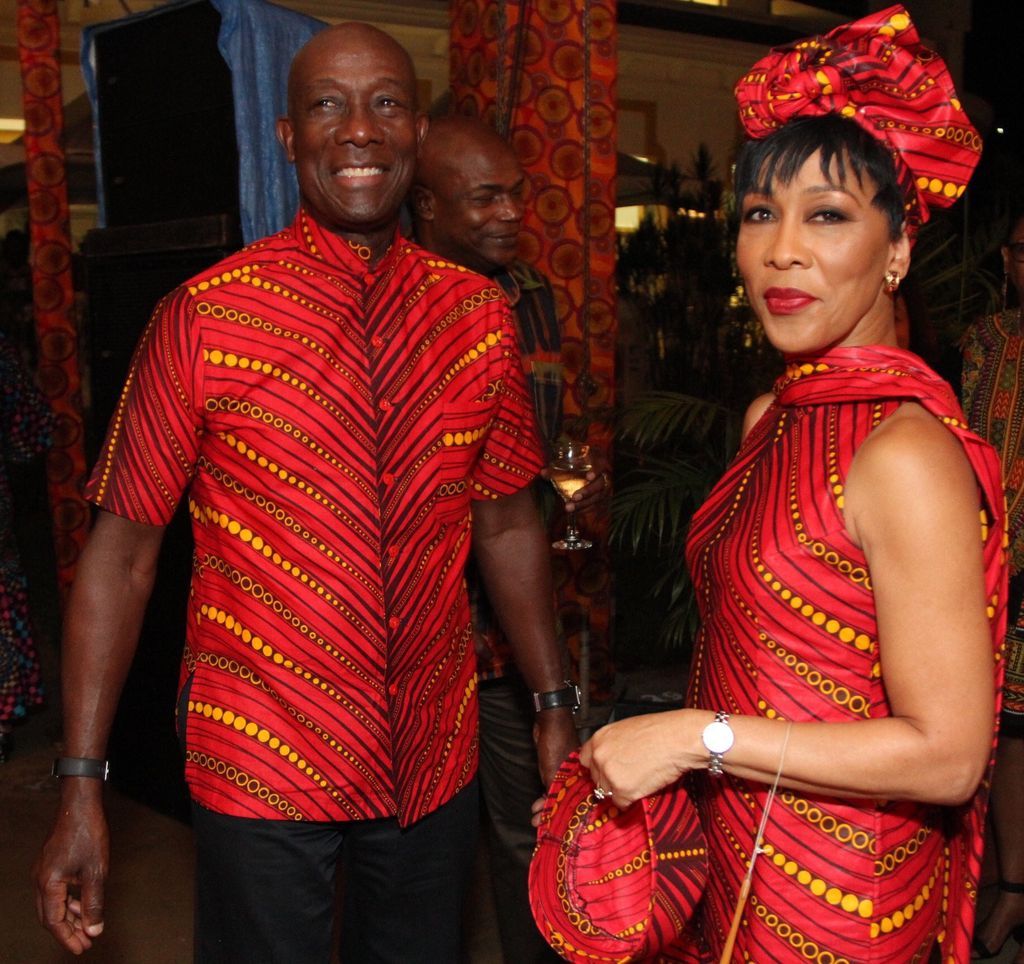(TrinidadGuardian)Prime Minister Dr Keith Rowley has taken issue with people who have spoken out against paying reparations to descendants of African slaves.
Rowley chastised these individuals during his address to members of the public who gathered for the launch of the Emancipation Day procession at Independence Square, Port-of-Spain, on Tuesday.
In his speech, Rowley said one historian described the descendants of the enslaved as victims of the African “cultural holocaust”.
He said another historian suggested that there should be “a Middle Passage Plan” for Africans, with Europe giving reparations to areas of the diaspora, like the re-construction designs of its “Marshall Plan”, after World War II.
He said, “You will, no doubt, be familiar with the continuing efforts and appeals in this area to the former European colonisers.
“Some, the direct beneficiaries of this holocaust, prefer to write new revisionist history to pretend that it didn’t happen, some pat us on the shoulder to say “let’s just move on, it couldn’t be all that bad” and most recently, boldfaced morons are now even suggesting that we should be grateful for the “benefits that were bestowed” upon us by slavery through language and acculturation”.
The Prime Minister said, however, that despite Europe’s “calculated attempts at de-humanising us,” there was always resistance.
He said as CLR James, one of T&T ’s foremost literary figures concluded, African slaves fought back, powerfully, with the contents of their minds—the memories, the logic and resilience of their people.
“I speak proudly today that what James identified some eighty years ago, continues to be realised in the contributions of citizens of Trinidad and Tobago to the world stage.”
“For example, we have created and given the world our steelpan, our Calypso, our soca music, which have gone on to influence other musical forms, even in Africa. We have done so, creating the world’s first gas-based economy, developed innovations in the oil industry, established the world-class Point Lisas Industrial Estate. We can cite our achievements in sport, literature, education, and many other fields, with our scholars occupying major positions around the world. We are also proud that, after serving on the UN Security Council at an earlier time, this September our country will assume the Presidency of the United Nations General Assembly,” Dr Rowley said.
As the Prime Minister lauded the presence of Asantahene Otumfuo Nana Osei Tutu II, King of the Asante/Ashanti people, he called on nationals to re-examine the way Africa was presented to the rest of the world by Europe. He said it was not a “dark” or “primitive” continent, but one with a rich legacy that we share.
“It is significant to our citizens of African descent, and, particularly, to our younger generation, many of whom are witnessing and discovering, for the first time, the presence, stature and majesty of African royalty in our midst,” he said.
“Hopefully, from today, the word “their” which implies something foreign, other, or of distant ownership, will be changed and we will begin to share, and embrace every aspect of both our lives as “Ours”—meaning that on both sides of the Atlantic, African people will see the “one-ness” that we carry within us. Then, we will be separated only by the narrowing waters of the Atlantic.”
He went on to praise the King’s personal background, as he acknowledged his training in the United Kingdom and Canada as well as his “Pillar of Peace” Award for the settlement of differences between two royal families, and the Chancellorship of the Kwame Nkrumah University of Science and Technology.
Furthermore, Rowley welcomed an opportunity to collaborate in energy and education with the Ghanian people. This, as he noted that Trinidadians CLR James and pan-African activist George Padmore—who helped to guide Ghana’s independence—are still celebrated there. He acknowledged the existence and featuring of the George Padmore Library in Accra which is testament to the long and trusted bonds between both nations.
“I will admit that I am personally interested in this aspect, with the hope that—along with the commercial prospects, in the hydrocarbon business, that have been discussed earlier—there could be some measure of continuous collaboration and exchange between your University, and our University of the West Indies, and the University of Trinidad and Tobago—as both of our regions continue to focus on the advancing technologies and other disciplines, in this, the 21st century,” he said.










